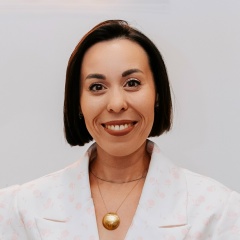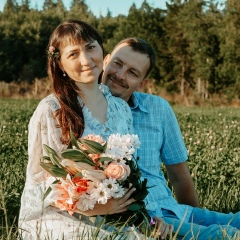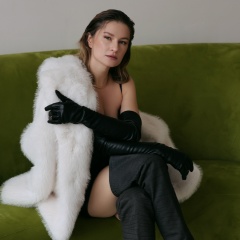Внеклассное чтение
Второй генделевский проект в новейшей истории Большого подтвердил, что для оркестра театра барочная опера — не факультатив, а новая область репертуарной компетенции
Своя барочная опера в России — мечта в полоску, сошедшая с экранов мониторов вместе с моряками в тельняшках и домоткаными волнами из культовой постановки «Галантных Индий» Les Arts Florissants, впитанная через наушники вместе с саундом Кристи, Минковского и Арнонкура. Те несколько институций, что, в условиях скуднейшей инфраструктуры старинной музыки, пробовали её воплотить, действовали с заметным энтузиазмом, к которому в разных пропорциях добавляли изобретательность, материальный ресурс и упрямство. Большой театр, пополнив список, существенно изменил соотношение сил, а мечтателям предложил Генделя и новые формы.
Предложение было встречено восторженно и вместе с тем настороженно: те, кто успел пристраститься к «тому самому» звуку, знали, что он достигается годами целенаправленного обучения — трудно было поверить, что оркестр Большого, пусть имеющий опыт работы над «аутентичным» исполнением «Дон Жуана» с Теодором Курентзисом, пусть вооружённый барочными смычками и усиленный теорбой и клавесинами, сможет овладеть тайным искусством в перерыве между Чайковским и Шостаковичем. На «Роделинде» можно было подумать, что тебя телепортировали. На «Альцине» стало ясно: это европейская школа исполнения барокко на наших глазах пускает корни в Большом.
Сомнения, что оркестр выдаст «не того» Генделя, рассеивались уже на увертюре «Роделинды». Бодрые темпы, прозрачная артикуляция, фразировка, упруго отталкивающаяся от временной сетки, которую деловито вычерчивала машинка континуо, не говоря уже об отсутствии вибрато, трелях с верхней ноты в долю и кадансах без замедлений, — словом, всё, чем радует знатока щепетильный Лондон, было на месте, и многое — очень убедительно. При этом и дирижёр, и музыканты обходились без яростного напора и экзальтации, так хорошо знакомых по предыдущим отечественным барочным проектам: настоящий британец, Кристофер Мулдс вёл оркестр легко и корректно, а в наполнявшем музыку драйве более всего угадывался (под стать озорной режиссуре Ричарда Джонса) ребячий азарт и упоение игрой.
Этот азарт открытия — нового звука, нового мышления и той неисчерпаемой свободы, что открывается вслед за ограничивающей логикой стиля — стремился поддержать в музыкантах дирижёр следующей генделевской постановки итальянец Андреа Маркон, который, прежде чем отметиться в мире оперы, получил широкую известность как органист и клавесинист. «Альцина» благодаря ему не только засверкала бриллиантами клавесинной инкрустации: в оркестре появилась особая лёгкость и устремлённость крупных построений, а также — гибкость и подвижность ансамбля, недостижимые без исполнительской свободы. Именно о свободе, об отклонениях от нотного текста, которые предполагали и на которые рассчитывали композиторы, маэстро говорил больше всего на первых репетициях и на мастер-классе для молодых вокалистов, прошедшем в конце октября в Бетховенском зале театра.
Хочется думать, что этот мастер-класс, вызвавший живой интерес, не случаен и получит продолжение. Ведь по мере того, как с оркестром Большого работают европейские амбассадоры старинной музыки, театр становится лабораторией по освоению исполнительской традиции, к которой отечественные музыканты приобщаются сегодня, по большей части, внеклассно.
Текст был опубликован в составе материала под общим названием "Внеклассное чтение" в журнале "Большой театр", № 5 (10), 2017.
#resonanceaward
#премиярезонанс
Второй генделевский проект в новейшей истории Большого подтвердил, что для оркестра театра барочная опера — не факультатив, а новая область репертуарной компетенции
Своя барочная опера в России — мечта в полоску, сошедшая с экранов мониторов вместе с моряками в тельняшках и домоткаными волнами из культовой постановки «Галантных Индий» Les Arts Florissants, впитанная через наушники вместе с саундом Кристи, Минковского и Арнонкура. Те несколько институций, что, в условиях скуднейшей инфраструктуры старинной музыки, пробовали её воплотить, действовали с заметным энтузиазмом, к которому в разных пропорциях добавляли изобретательность, материальный ресурс и упрямство. Большой театр, пополнив список, существенно изменил соотношение сил, а мечтателям предложил Генделя и новые формы.
Предложение было встречено восторженно и вместе с тем настороженно: те, кто успел пристраститься к «тому самому» звуку, знали, что он достигается годами целенаправленного обучения — трудно было поверить, что оркестр Большого, пусть имеющий опыт работы над «аутентичным» исполнением «Дон Жуана» с Теодором Курентзисом, пусть вооружённый барочными смычками и усиленный теорбой и клавесинами, сможет овладеть тайным искусством в перерыве между Чайковским и Шостаковичем. На «Роделинде» можно было подумать, что тебя телепортировали. На «Альцине» стало ясно: это европейская школа исполнения барокко на наших глазах пускает корни в Большом.
Сомнения, что оркестр выдаст «не того» Генделя, рассеивались уже на увертюре «Роделинды». Бодрые темпы, прозрачная артикуляция, фразировка, упруго отталкивающаяся от временной сетки, которую деловито вычерчивала машинка континуо, не говоря уже об отсутствии вибрато, трелях с верхней ноты в долю и кадансах без замедлений, — словом, всё, чем радует знатока щепетильный Лондон, было на месте, и многое — очень убедительно. При этом и дирижёр, и музыканты обходились без яростного напора и экзальтации, так хорошо знакомых по предыдущим отечественным барочным проектам: настоящий британец, Кристофер Мулдс вёл оркестр легко и корректно, а в наполнявшем музыку драйве более всего угадывался (под стать озорной режиссуре Ричарда Джонса) ребячий азарт и упоение игрой.
Этот азарт открытия — нового звука, нового мышления и той неисчерпаемой свободы, что открывается вслед за ограничивающей логикой стиля — стремился поддержать в музыкантах дирижёр следующей генделевской постановки итальянец Андреа Маркон, который, прежде чем отметиться в мире оперы, получил широкую известность как органист и клавесинист. «Альцина» благодаря ему не только засверкала бриллиантами клавесинной инкрустации: в оркестре появилась особая лёгкость и устремлённость крупных построений, а также — гибкость и подвижность ансамбля, недостижимые без исполнительской свободы. Именно о свободе, об отклонениях от нотного текста, которые предполагали и на которые рассчитывали композиторы, маэстро говорил больше всего на первых репетициях и на мастер-классе для молодых вокалистов, прошедшем в конце октября в Бетховенском зале театра.
Хочется думать, что этот мастер-класс, вызвавший живой интерес, не случаен и получит продолжение. Ведь по мере того, как с оркестром Большого работают европейские амбассадоры старинной музыки, театр становится лабораторией по освоению исполнительской традиции, к которой отечественные музыканты приобщаются сегодня, по большей части, внеклассно.
Текст был опубликован в составе материала под общим названием "Внеклассное чтение" в журнале "Большой театр", № 5 (10), 2017.
#resonanceaward
#премиярезонанс
extracurricular reading
The second Handel project in the recent history of the Bolshoi confirmed that for the orchestra of the theater, baroque opera is not an elective, but a new area of repertoire competence
Its own baroque opera in Russia is a striped dream that came off the monitor screens along with sailors in vests and homespun waves from the cult production of Gallant Indies Les Arts Florissants, absorbed through headphones along with the sound of Christie, Minkowski and Arnoncourt. The few institutions that, in the conditions of the meager infrastructure of early music, tried to implement it, acted with noticeable enthusiasm, to which inventiveness, material resources and stubbornness were added in different proportions. The Bolshoi Theater, adding to the list, significantly changed the balance of power, and the dreamers offered Handel and new forms.
The proposal was greeted with enthusiasm and at the same time with caution: those who had managed to get addicted to the “same” sound knew that it was achieved by years of purposeful training - it was hard to believe that the Bolshoi's orchestra, even if it had experience working on the “authentic” performance of Don Juan ”with Theodore Currentzis, even if armed with baroque bows and reinforced with theorba and harpsichords, he will be able to master the secret art during the break between Tchaikovsky and Shostakovich. On Rodelind, you might have thought you were teleported. On "Alcina" it became clear: this European school of baroque performance is taking root in the Bolshoi before our very eyes.
Doubts that the orchestra would betray the "wrong" Handel had already dissipated on the Rodelinda overture. Bouncy tempos, transparent articulation, phrasing that resiliently repelled from the time grid, which was busily drawn by the continuo machine, not to mention the absence of vibrato, trills from the top note to the beat and cadences without slowing down - in a word, everything that pleases the connoisseur of scrupulous London was in place, and much - very convincing. At the same time, both the conductor and the musicians dispensed with the fierce pressure and exaltation, so well known from previous domestic baroque projects: a real Briton, Christopher Molds led the orchestra easily and correctly, and in the drive that filled the music he was most guessed (to match the mischievous direction of Richard Jones) childish excitement and delight in the game.
This excitement of discovery - a new sound, new thinking and that inexhaustible freedom that opens after the limiting logic of style - sought to support in musicians the conductor of the next Handel production, the Italian Andrea Marcon, who, before entering the world of opera, became widely known as an organist and harpsichordist ... Thanks to him, "Alcina" not only sparkled with diamonds of harpsichord inlay: a special lightness and aspiration of large structures appeared in the orchestra, as well as the flexibility and mobility of the ensemble, unattainable without performing freedom. It was about freedom, about deviations from the musical text, which the composers assumed and hoped for, that the maestro spoke most of all at the first rehearsals and at the master class for young vocalists, which took place at the end of October in the Beethoven Hall of the theater.
I would like to think that this master class, which aroused keen interest, is not accidental and will be continued. Indeed, as European ambassadors of early music work with the Bolshoi orchestra, the theater is becoming a laboratory for mastering the performing tradition, to which Russian musicians are introduced today, for the most part, out of class.
The text was published as part of the material under the general title "Extracurricular Reading" in the Bolshoi Theater magazine, No. 5 (10), 2017.
#resonanceaward
#Primeresonance
The second Handel project in the recent history of the Bolshoi confirmed that for the orchestra of the theater, baroque opera is not an elective, but a new area of repertoire competence
Its own baroque opera in Russia is a striped dream that came off the monitor screens along with sailors in vests and homespun waves from the cult production of Gallant Indies Les Arts Florissants, absorbed through headphones along with the sound of Christie, Minkowski and Arnoncourt. The few institutions that, in the conditions of the meager infrastructure of early music, tried to implement it, acted with noticeable enthusiasm, to which inventiveness, material resources and stubbornness were added in different proportions. The Bolshoi Theater, adding to the list, significantly changed the balance of power, and the dreamers offered Handel and new forms.
The proposal was greeted with enthusiasm and at the same time with caution: those who had managed to get addicted to the “same” sound knew that it was achieved by years of purposeful training - it was hard to believe that the Bolshoi's orchestra, even if it had experience working on the “authentic” performance of Don Juan ”with Theodore Currentzis, even if armed with baroque bows and reinforced with theorba and harpsichords, he will be able to master the secret art during the break between Tchaikovsky and Shostakovich. On Rodelind, you might have thought you were teleported. On "Alcina" it became clear: this European school of baroque performance is taking root in the Bolshoi before our very eyes.
Doubts that the orchestra would betray the "wrong" Handel had already dissipated on the Rodelinda overture. Bouncy tempos, transparent articulation, phrasing that resiliently repelled from the time grid, which was busily drawn by the continuo machine, not to mention the absence of vibrato, trills from the top note to the beat and cadences without slowing down - in a word, everything that pleases the connoisseur of scrupulous London was in place, and much - very convincing. At the same time, both the conductor and the musicians dispensed with the fierce pressure and exaltation, so well known from previous domestic baroque projects: a real Briton, Christopher Molds led the orchestra easily and correctly, and in the drive that filled the music he was most guessed (to match the mischievous direction of Richard Jones) childish excitement and delight in the game.
This excitement of discovery - a new sound, new thinking and that inexhaustible freedom that opens after the limiting logic of style - sought to support in musicians the conductor of the next Handel production, the Italian Andrea Marcon, who, before entering the world of opera, became widely known as an organist and harpsichordist ... Thanks to him, "Alcina" not only sparkled with diamonds of harpsichord inlay: a special lightness and aspiration of large structures appeared in the orchestra, as well as the flexibility and mobility of the ensemble, unattainable without performing freedom. It was about freedom, about deviations from the musical text, which the composers assumed and hoped for, that the maestro spoke most of all at the first rehearsals and at the master class for young vocalists, which took place at the end of October in the Beethoven Hall of the theater.
I would like to think that this master class, which aroused keen interest, is not accidental and will be continued. Indeed, as European ambassadors of early music work with the Bolshoi orchestra, the theater is becoming a laboratory for mastering the performing tradition, to which Russian musicians are introduced today, for the most part, out of class.
The text was published as part of the material under the general title "Extracurricular Reading" in the Bolshoi Theater magazine, No. 5 (10), 2017.
#resonanceaward
#Primeresonance
У записи 3 лайков,
0 репостов,
238 просмотров.
0 репостов,
238 просмотров.
Эту запись оставил(а) на своей стене Илья Попов
























